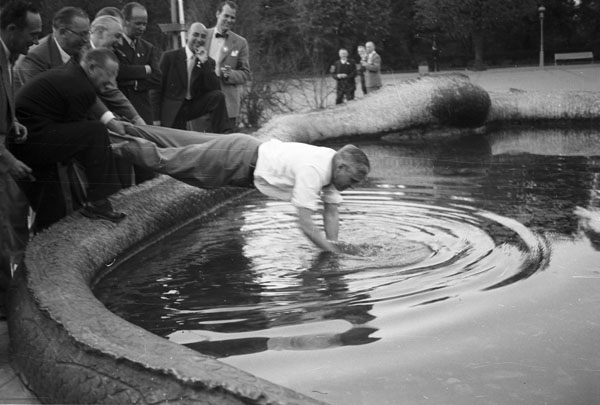How do people find things? By searching for it. On the web. So having some knowledge of how to make your things easier to search for is an asset that comms people need. Here's a  basic guide.
basic guide.
by GUEST EDITOR Sarah Lay
Search is important because so many people do it online. Thirty-five per cent of all UK visits online came from a search engine in January 2012, according to this survey by Hitwise, and the most popular engine of choice is Google (it had an 89% market share in the UK in June 2013). If so many people are using search as a short-cut to what they want online you need to make sure your information is the stuff that gets found.
Unravelling the mystery of search
Let's start with demystifying some of these acronyms shall we? So, SEO - Search Engine Optimisation, or how to make your content better not only for the person reading it but the search engine indexing it to get them there in the first place. If you've heard the term before it's probably been mumbled in hushed tones as if it is some dark art not for the faint hearted or ethical.
But SEO isn't that at all, it's the way in which search engines find, organise and rank all of the information out there and present that to a web user who's started their online visit by typing in a keyword or phrase vaguely describing what they're looking for. That gives you SERP by the way - Search Engine Result Page, or the way in which the users choices are presented back to them.
On your SERP you have a mix of organic and paid for results (PPC - Pay Per Click, is a form of advertising by paying for your result to be show when a certain keyword is used). The organic stuff gets the majority of the clicks - 94% of them in fact - so it's worth making sure you've done what you can to get the top spots in the list.
For now. Viewing on different devices with smaller screens (smartphones for example) causes the results page to display in a slightly different way which may make people choose a paid-for rather than organic link. But that’s a subject to discuss another day!
Four principles for search-friendly, quality content
The good news is that if you've been working at creating great content that is relevant to your audience then you've got the basis for some top-notch SEO. Back in the day there were plenty of dodgy practices you could carry out (buzzword - black hat / white hat, ethically or sound practices designed to get better search placement for less-than-ideal content) but Google now looks more closely at the quality and relevancy of content than ever before.
For all digital content there are four principles you should look to fulfill to help your content be found by the right person, at the right time. The principles utilises skills that PRs and communicators have used across their work on other channels, in fact much of the profession’s established practices make them a great fit as SEO evolves to be about quality content.
Here’s how you can start to get your content optimised for search:
- · Relevant - how many of us are repping a truly unique proposition? Not many of us I'd wager. Local government has been especially guilty of relying on being the sole provider of a service in a given geographical area to skip over SEO (or *whisper it* quality content). But we're in a world of increasing competition (and for local government commissioned services) and crossing your fingers and hoping that people will find you, or choose you, online is a risky strategy.
- · Trustworthy - aim to be the definitive source for information on your subject, or for your product. Some of this may come from your domain name (again, traditionally .gov.uk addresses have carried higher credibility due to the limitations on acquiring one) or through getting lots of inbound links to your page. Think of these as citations, recommendations from others that your content is useful.
- · High quality - yes, your spelling and grammar matter. Junk the jargon, use capital letters correctly, develop a consistent appropriate tone and make your content readable as well as interesting.
- · Engaging - your search positioning now factors in social signals too. How shareable, likable, +1-able is the information you're putting out on social networks? It isn't good enough to broadcast links to your web pages (for *so* many reasons) you need to be getting great engagement going and being an active participator in your communities and networks.
Of course this is the tip of the iceberg with search engine optimisation and there are many skills and practices you can apply to your digital content to help it get found.
Some practices are more technical or in-depth than others but as a starting point make sure whatever you create meets the four principles here and you’ll have taken the first step on your journey toward mastering SEO.
Sarah Lay is a digital professional working in UK local government, about to take up a post with Nottinghamshire County Council. She is also communications lead for the LocalGov Digital steering group and reviews editor for the fastest growing music website in the UK, Louder Than War. She blogs about digital communications at sarahlay.com

